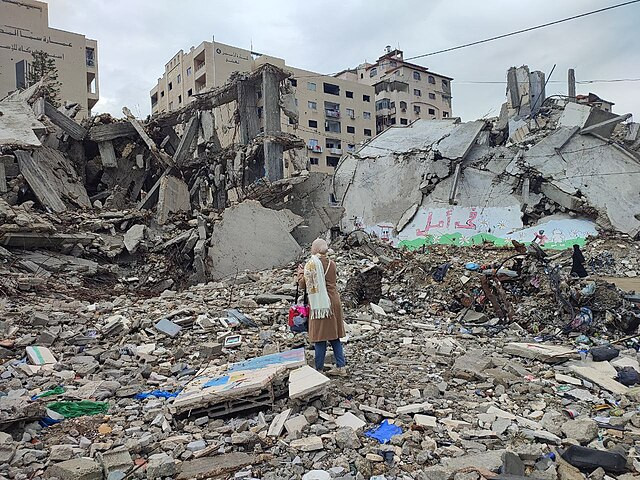Israel launched a new wave of air and ground attacks on Gaza after reports that Hamas forces targeted Israeli units in the territory's south, shattering a fragile three-week ceasefire that had briefly paused months of bloodshed. The renewed hostilities underscore the limits of the truce and the mounting pressures facing Hamas, whose internal fractures and weakening authority have amplified Gaza's instability.
Israeli Prime Minister Benjamin Netanyahu ordered what he called "powerful" strikes following the alleged Hamas assault. Explosions were reported across Gaza City and Deir al-Balah, while tank fire echoed from zones under Israeli control. Gaza's Civil Defence, an agency linked to Hamas, reported at least nine fatalities and multiple injuries. Hamas denied carrying out the attack and accused Israel of obstructing its planned handover of a deceased hostage.
The violence also reached areas near Al-Shifa Hospital, one of the most densely populated parts of Gaza, intensifying fears for civilians already enduring shortages of shelter, power, and medical care. The recurrence of heavy bombardment so soon after the ceasefire reflects the fragility of short-term truces in a conflict shaped by entrenched hostility and shifting power dynamics.
Hamas's grip on Gaza appears to be weakening under the strain of both external and internal challenges. Armed clans such as the Doghmush and Al-Majayda families have reportedly expanded their influence, raising concerns about parallel militias operating outside Hamas's command structure. These groups, better armed and increasingly territorial, are testing Hamas's ability to impose order and maintain unified control over the enclave.
The disunity has compounded operational setbacks. Ongoing Israeli strikes have disrupted search efforts for the remains of Israeli hostages still believed to be in Gaza, while internal rivalries have hampered coordination among Hamas's security wings. The organization faces growing discontent from residents weary of war and disillusioned with its governance, creating conditions for rival factions to exploit local instability.
The hostage issue remains a critical flashpoint. The now-collapsed ceasefire had enabled the exchange of 20 living hostages for nearly 2,000 Palestinian prisoners, yet 13 deceased hostages remain unrecovered. Israel has accused Hamas of mishandling their remains, while Hamas blames the destruction caused by Israeli airstrikes for delays. The standoff has reignited tensions on both sides and further complicated prospects for renewed negotiation.
United Nations Special Rapporteur Francesca Albanese told Sky News that the ongoing bombardment constitutes an "ongoing genocide," sharply criticizing Israel for its military operations in civilian zones. Her remarks drew diplomatic rebuke from Israeli officials and added to international divisions over accountability for the conflict's toll.
Regional reactions mirrored that split. U.S. Vice President JD Vance maintained that the "ceasefire framework remains in place despite intermittent skirmishes," while Turkey denounced the Israeli offensive as a "flagrant violation" of the truce. The conflicting statements reflect the delicate balancing act among international actors attempting to sustain diplomatic leverage while avoiding deeper involvement in the conflict.






